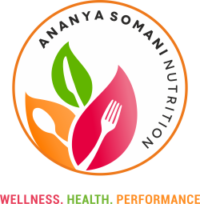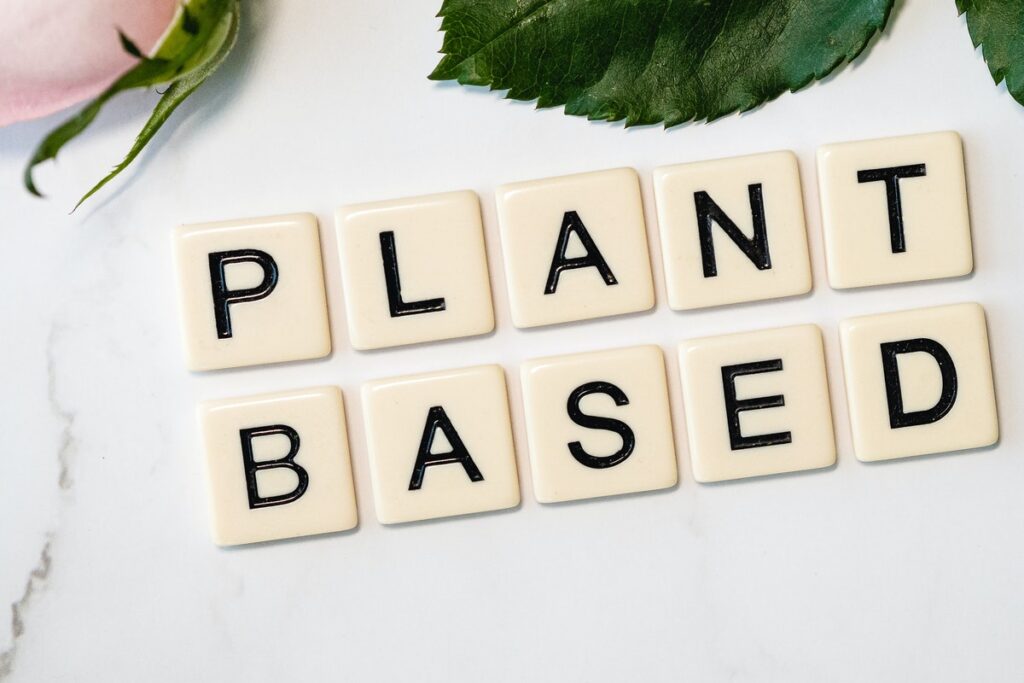Vegetarian and vegan diets have been gaining popularity off-late. When it comes to vegetarian diets, some may include a few animal-based products (e.g. milk, eggs) whilst a vegan diet excludes all animal products, even milk products, honey and gelatin. Irrespective of an athlete being vegetarian or not the energy and nutrient needs can be met and support their performance and studies have shown that it does not affect their aerobic and anaerobic capacity. There can be higher chances of certain micronutrient deficiencies in vegetarian and vegan diets, let’s look at how one can prevent and combat these:
PROTEIN:
Athletes have higher protein needs as compared to the general population for it’s roles in muscle protein synthesis, recovery, adaptation to exercise and managing overall health. Major protein sources in vegetarian diets include whole pulses, milk and milk products, soy products and tofu.
With vegan diets, milk and milk products are excluded from their diet and further consideration and planning may be required to meet protein needs. As figure 1 shows, the feasibility of consuming adequate protein in terms of food volume and caloric intake varies with different protein sources.

With planning, plant-based protein sources can be combined to make a complete protein that provides all the essential amino acids. For example, combining cereal and pulse (e.g. rice and dal) together or combining cereals with milk (e.g. oats and milk) for vegetarian athletes. Further, protein powders that provide concentrated doses of protein, including adequate amino acids, particularly leucine, for muscle building can be utilised.
VITAMIN B12:
Athletes on vegetarian or vegan diets have lower intake of vitamin B12 as the major sources of it are foods of animal origin. Vitamin B12 helps support energy metabolism, reduces fatigue and is involved in the production of red blood cells. Vegetarian food sources of vitamin B12 include milk and milk products (e.g. milk, curd, paneer). Since athletes on vegan diets do not consume milk, foods fortified with vitamin B12 (e.g. fortified plant milks) or supplements can be consumed as well as foods such as nutritional yeast.
CALCIUM:
Calcium is required for strengthening bones, contracting muscles and is particularly important for adolescent athletes. It has been observed that there are no differences in calcium intake between vegetarian and non-vegetarian diets as milk-based products are a good source of calcium. However, for vegan athletes, calcium intake can be more tricky. Foods such as tofu and soy products, nuts and seeds (e.g. almonds, brazil nuts, sesame seeds) green leafy vegetables, millets (e.g. ragi), pulses and legumes (e.g. chickpeas, lentils) and calcium fortified foods (e.g. fortified plant milks) can be consumed.
IRON:
Plant-based athletes can be at a higher risk of having low iron stores in their body as they rely on non-heme iron sources which have a lower absorption compared to heme sources such as meat. Studies show that vegetarians have a lower iron intake as compared to meat eaters which may impair their performance because iron helps in transporting oxygen and maintaining energy metabolism. The vegetarian and vegan sources of iron are legumes (e.g. kidney beans, lentils, pigeon pea), tofu, nuts and seeds (e.g. almonds, cashews, sesame, hemp seeds), grains (e.g. oats, bajra, quinoa) and green leafy vegetables. Pairing these foods with vitamin C (e.g. lime, tomato, chili) can help improve iron absorption and if unable to meet needs, supplements can be considered.
ZINC:
Zinc improves immunity, helps in healing and in breaking down carbohydrates. The major source of zinc in the diet comes from animal products. Hence, plant-based athletes, especially vegans, can be at risk of lower intake of zinc. Food sources such as pulses and legumes (e.g. chickpeas, lentils, kidney beans), nuts and seeds (e.g. pine nuts, peanuts, cashews, hemp, pumpkin seeds), grains (e.g. oats, rice, quinoa) can be included in the diet. For vegetarians, milk and milk products are an additional source of zinc.
OMEGA-3 FATTY ACIDS:
At the end of the day, whether an athlete chooses to be vegan, vegetarian or neither is a personal and/or ethical choice. It is not superior across the board (read more here), but does have considerations that need to be managed to meet their nutritional needs.
This blog was contributed to by our intern, Karesna Mehta.
REFERENCES:
- Burke, L., Deakin, V., & Allanson, B. Clinical Sports Nutrition. North Ryde, N.S.W., Australia: McGraw-Hill Education (Australia) Pty.
- Craddock, J. C., Probst, Y. C., & Peoples, G. E. (2016). Vegetarian and Omnivorous Nutrition – Comparing Physical Performance. International journal of sport nutrition and exercise metabolism, 26(3), 212–220. https://doi.org/10.1123/ijsnem.2015-0231
- Donovan, U. M., & Gibson, R. S. (1995). Iron and zinc status of young women aged 14 to 19 years consuming vegetarian and omnivorous diets. Journal of the American College of Nutrition, 14(5), 463–472. https://doi.org/10.1080/07315724.1995.10718537
- Ella H Haddad, Lee S Berk, James D Kettering, Richard W Hubbard, Warren R Peters, Dietary intake and biochemical, hematologic, and immune status of vegans compared with nonvegetarians, The American Journal of Clinical Nutrition, Volume 70, Issue 3, September 1999, Pages 586s–593s, https://doi.org/10.1093/ajcn/70.3.586s
- Hanne, N., Dlin, R., & Rotstein, A. (1986). Physical fitness, anthropometric and metabolic parameters in vegetarian athletes. The Journal of sports medicine and physical fitness, 26(2), 180–185.
- Kumar, S., Kaur, H., & Kaur, D. (2021). Study Of Iron Intake And Haemoglobin Concentration In Vegetarian And Non-Vegetarian Female Athletes. Retrieved from https://ejmcm.com/article_5947.html
- Office of Dietary Supplements – Vitamin B12. (n.d.). Retrieved from https://ods.od.nih.gov/factsheets/VitaminB12-HealthProfessional/
- Rogerson D. (2017). Vegan diets: practical advice for athletes and exercisers. Journal of the International Society of Sports Nutrition, 14, 36. https://doi.org/10.1186/s12970-017-0192-9
- Pinckaers, P., Trommelen, J., Snijders, T., & van Loon, L. (2021). The Anabolic Response to Plant-Based Protein Ingestion. Sports medicine (Auckland, N.Z.), 10.1007/s40279-021-01540-8. Advance online publication. https://doi.org/10.1007/s40279-021-01540-8

